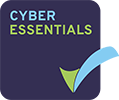All machinery requires lubrication in order to keep it in good working condition. The manufacture of food, beverages and pharmaceuticals adds an extra level of complexity due to the strict food safety regulations that govern the industry. Food Grade Lubricants must therefore be used in place of standard lubricants to facilitate the auditing requirements of the seller and to provide safety for the consumer.
For many years, NSF H1 accreditation was accepted as the standard indication of food safe lubricants, this is an honour system and is unaudited. Developments in the field have now led to a more thorough process to ensure safety in the high risk sector of food and drink manufacturing.
ISO 21469 is the highest accolade that a food grade lubricant manufacturer can achieve. It proves that a lubricant is manufactured in a hygienic environment, using both best practices and the safest ingredients.
NSF International
The NSF was founded in 1944 to protect and improve human health on a global scale. It is an independent, non-profit making organisation providing product certification. It is dedicated to being a global leader in public health and safety-based risk management.
FDA Listed Ingredients
The first step on the way to ensuring that a lubricant is suitable for ISO 21469 accreditation is to select ingredients that are food safe during initial development. The U.S. Food and Drug Administration (FDA) provide a list of all approved ingredients. This ensures that only safe levels of any ingredient are contained within an NSF accredited lubricant. Once complete, the formulation is submitted to the NSF for assessment against the H1 standard.
NSF H1
A lubricant with NSF H1 accreditation is acceptable for incidental food contact and can be used in and around food processing areas. It certifies that the product has been formulated from FDA approved ingredients but does not regulate the manufacturing process and relies on the honesty of the manufacturer.
H1 lubricants are suitable for use on food processing equipment in areas where there is potential for the exposure of the lubricant to food or its packaging. Typical applications of H1 lubricants are the lubrication of machine parts and corrosion inhibition.
In order to receive the NSF H1 accreditation and be authorised for use where incidental food contact may occur, a lubricant must meet the category requirements that cover the formulation of the product, its labelling and a review of the proposed end-use.
How ISO 21469 Certification is Achieved?
In addition to the requirements for H1, ISO 21469 accredited lubricant manufacturers must go through an unannounced annual auditing process to ensure that all products are made to strict hygiene standards, using good manufacturing practices.
Any manufacturer applying for certification will need to go through the four stage process detailed below. Certification will not be given until all criteria for each phase has been met.
Product Formulation Review
The formulation review for ISO 21469 is used to make sure that all the component ingredients of a food grade lubricant meet the desired standard and criteria for certification.
Testing
Thorough external product testing is conducted annually in order to ensure that conformance to the requirements of ISO 21469 remains up to date and consistent.
Risk Assessment
Risk assessments must be carried out to ensure that all potential hazards within the manufacturing process are identified.
Production Facility Audit
Manufacturing site audits are carried out allowing the NSF to confirm that all the criteria for accreditation are met.
Once the four stage process has been completed to the satisfaction of the NSF then the certification is awarded and the lubricant packaging is authorised to display the ISO 21469 NSF Certification Mark.
Who does it affect and why?
The positive effects of ISO 21469 are felt by many stakeholders:
Lubricants manufacturers seek ISO 21469 accreditation as the highest accolade that can prove their suitability for food grade applications.
Auditors are reassured by the presence of accreditation as it allows full traceability of the lubricant manufacturing process.
Food manufacturers prevent contamination of their products and reduce waste whilst supplying safe products to major supermarkets and other distributors.
Major supermarkets audit the food manufacturers that they deal with in order to manage and reduce the risks to their customers. Supermarkets are also increasingly insisting that their suppliers use lubricants that do not contain mineral hydrocarbons
Consumers are protected against the possibility of eating a product which is tainted with hazardous material.
Once ISO 21469 certification is achieved it proves that a lubricant is manufactured in a hygienic environment, using both best practices and the safest ingredients.
There are only 2 UK manufacturers of food grade lubricants who have ISO 21469 certification, with ROCOL being one of them.
If you need help with your lubrication management or lubrication audit requirements then get in touch with ROCOL
Article updated on 17/01/2022.

